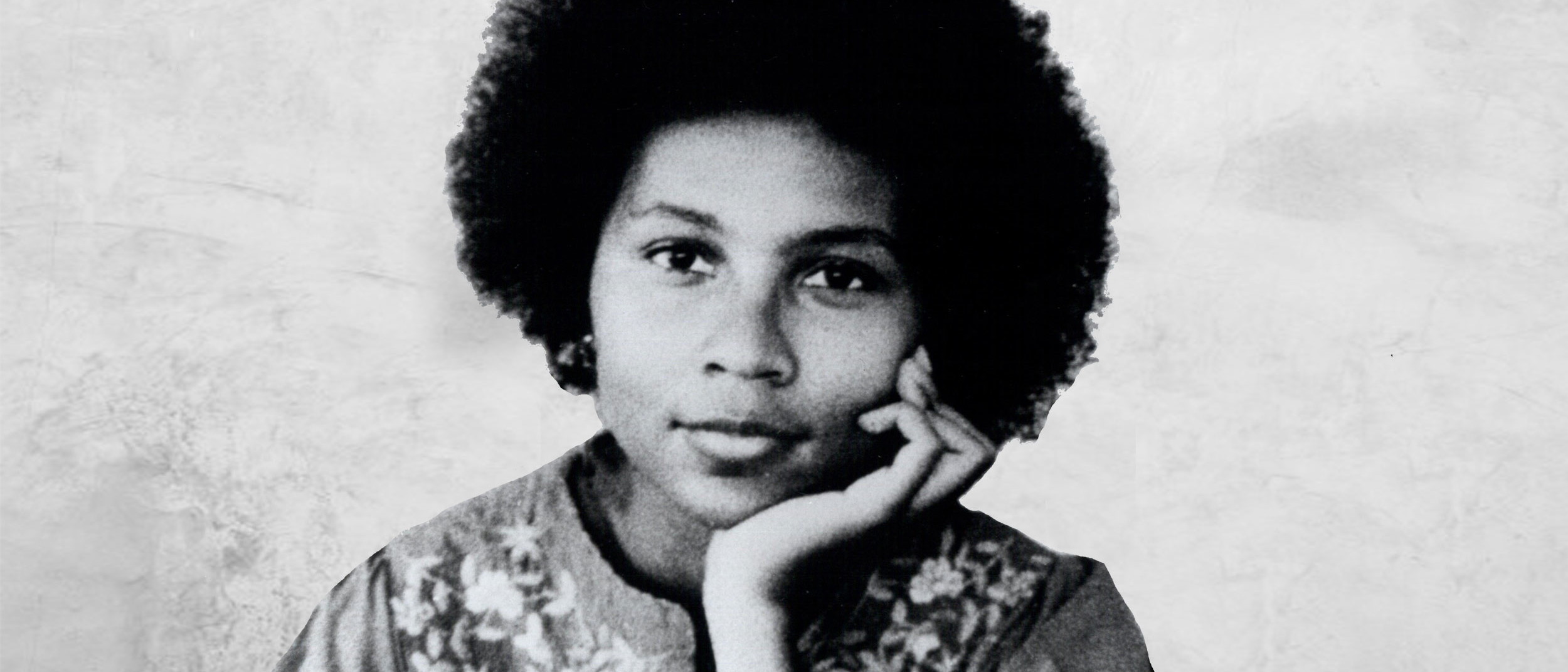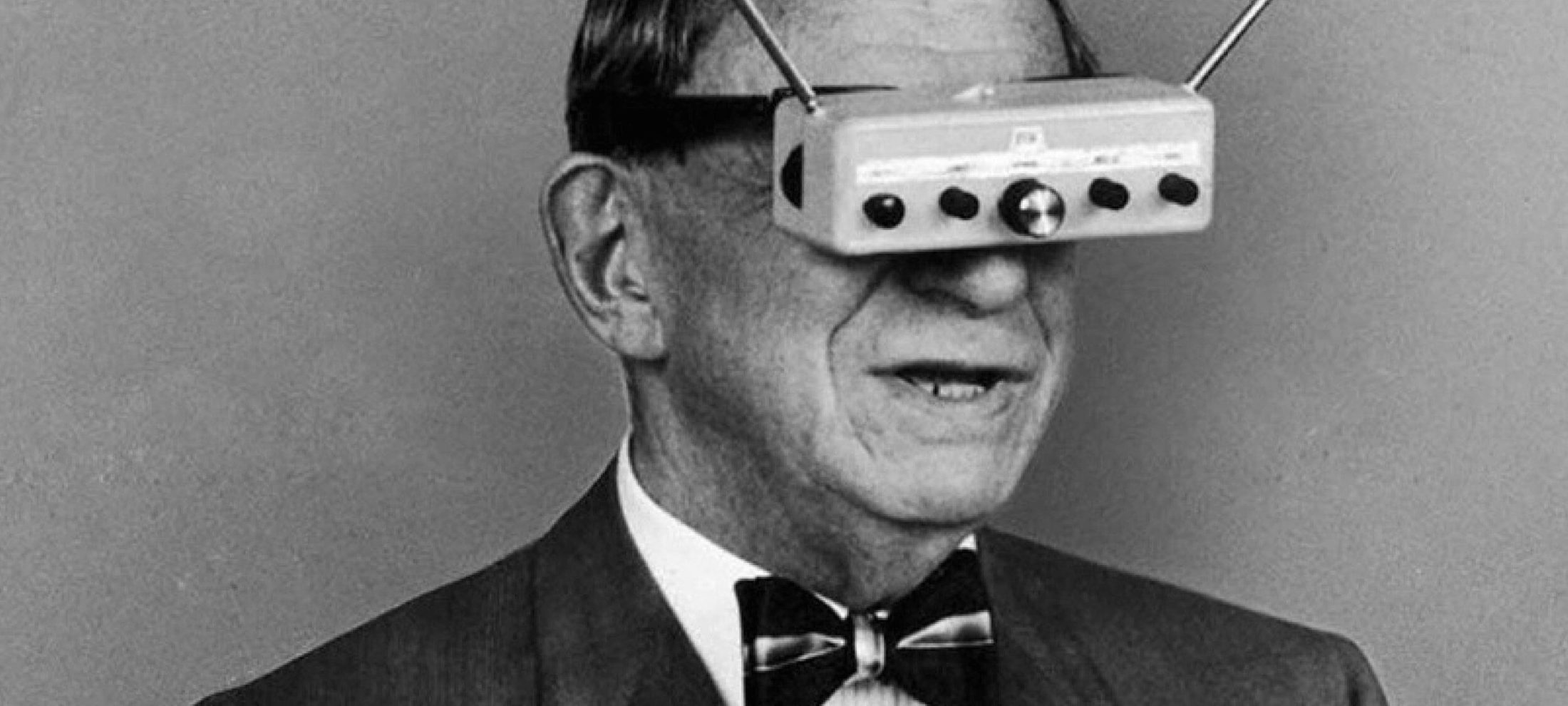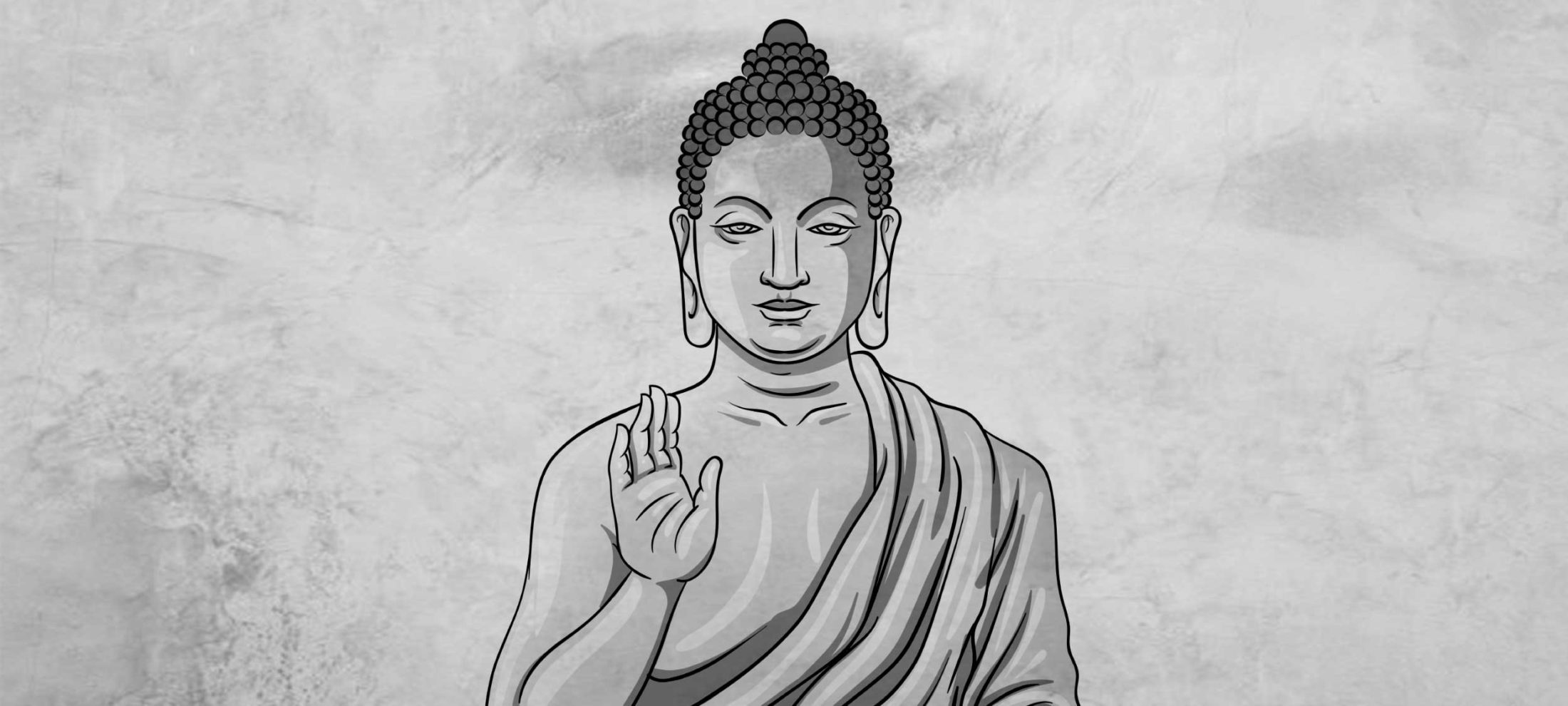
An outspoken professor, author, activist and cultural critic, bell hooks (1952-2021) drew attention to how feminism privileges white women’s struggles, while advocating for a more holistic way of understanding oppression.
Born Gloria Jean Watkins, bell hooks was a child who spoke back. Growing up in a segregated community of the south-central US state Kentucky, she fought against the ways in which her family and society sought to relegate her into a docile, black female identity. This refusal to be complicit in perpetuating her own oppression would define her life and career as a leader in black feminist thought.
It was when she first spoke back in public that she initially identified with her self-claimed moniker. An adult had dismissed her with a comparison to Bell Hooks, her maternal grandmother, in whose bold tongue and defiant attitude she found inspiration. She decapitalised the initials in order for others to focus on the substance of her ideas, rather than herself as a person.
hooks would become a prolific author and commentator. With notable titles including Talking Back, Ain’t I a Woman? and From Margin to Centre, her work scrutinises and challenges the ways in which media, culture and society uphold dominant oppressive structures.
Interlocking oppressions
A popular version of second wave feminism posited that all systems of oppression stemmed from patriarchy. This, hooks rejected. Instead, she introduced the idea that different types of oppression are interlocking and power is relational depending upon where you’re located on the matrix of class, sex, race and gender – which is not unlike the ideas underpinning the currently popular intersectional feminism.
hooks invented the term ‘imperialist white supremacist capitalist patriarchy’ to emphasise the multidimensionality of these power relations. She continues to use it today.
At the time, hooks’ paradigm was considered radical in that it undermined the notion there was a fundamentally common female experience. Many assumed this was vital for feminist solidarity to be forged and political unity maintained. Sisterhood was more complicated than that, hooks said – and to deny the uniqueness of each woman’s status and circumstance was another form of oppression.
Bold and to the point
While coming from academia, hooks strives to make her ideas easily accessible to a broad audience. Her writing style is free of jargon and often humorous, and she regularly appears in documentaries, open venues and television talk shows.
hooks is also renowned for focusing a sharp critical lens on popular culture, showing a strong opposition to political correctness. She’s criticised Spike Lee’s films, media coverage of the OJ Simpson trial and the lauded basketball documentary Hoop Dreams.
She also hasn’t held back her thoughts on prominent feminists.
hooks criticised Madonna for repudiating feminist principles by chasing stardom, and fetishising black culture in her film clips and live shows while reinforcing stereotypes of black men as violent primitives in a 1996 interview.
Twenty years later, she called the pop queen of lady power Beyoncé an ‘anti-feminist terrorist’, citing concern over the influence sexualised images of her have on young girls.
hooks also expressed disappointment Michelle Obama positioned herself as the nation’s ‘chief mum’, saying that by effacing her identity as an Ivy League educated lawyer, she was appeasing white hatred.
Oppositional gaze
Laura Mulvey introduced the theory of the ‘male gaze’ in the ’70s. It explains how images – particularly Hollywood mainstream images – are created to reproduce dominant male heteronormative ways of looking. hooks, who was fascinated with film as the most ‘efficient’ ideological propaganda tool, coined an associated term on black spectatorship: the ‘oppositional gaze’.
Looking has always been a political act, hooks argued. For subordinates in relations of power, looks can be “confrontational, gestures of resistance” which challenge authority. Had a black slave looked directly at a white person of status, they risked severe punishment – even death. Yet “attempts to repress our/black people’s right to gaze had produced in us an overwhelming longing to look, a rebellious desire, an oppositional gaze,” writes hooks.
“By courageously looking, we defiantly declared: ‘Not only will I stare. I want my look to change reality.’”
Black spectatorship of early Hollywood cinema was processed through this oppositional gaze. It was abundantly clear to these viewers, hooks writes, that film reproduced white supremacy. They saw nothing of themselves reflected in this white-washed fantasy realm. Black independent cinema emerged as an expression of resistance.
At the same time, hooks saw television and film as a site where black viewers were able to subject white representations to an interrogative gaze. Carried out in the privacy of the home or in a darkened cinema, this action also carried no risk of reprisal. That black men could look at white female bodies without fear was hugely significant – it was only 1955 when 14-year-old African American Emmett Till was lynched after being accused of offending a white woman in a Mississippi grocery store.
But while black male spectators “could enter an imaginative space of phallocentric power,” the experience of the black female spectator was vastly different, hooks writes. In both white and black productions, the male gaze still overdetermined screen images of women, and frequently idolised white female stars as the supreme objects of desire.
This continued the “violent erasure of black womanhood” in screen culture, making identification with any of the depicted subjects disenabling. While this denied black women the typical joys of watching, the fact that they “looked from a location that disrupted” meant that they could become “enlightened witnesses” through critical spectatorship.
Modern feminism in crisis
Despite the advances of women in the workplace, hooks nonetheless sees today’s feminism in a state of crisis. Firstly, she believes that we still haven’t addressed egalitarianism in the home, leaving women belittled and frustrated in heteronormative relationships.
She also believes that feminism today has lost its radical potential, in that it has converged too closely with radical individualism. Feminism does not mean that as a woman “you can do whatever you want, that you can have it all”, she says. Instead, if you’re to live inside a feminist framework, you need to undertake specific everyday actions. For this reason, hooks believes there are very few true living feminists.
Still, she remains a firm advocate of feminist politics, saying “My militant commitment to feminism remains strong…”
…and the main reason is that feminism has been the contemporary social movement that has most embraced self-interrogation. When we, women of color, began to tell white women that females were not a homogenous group, that we had to face the reality of racial difference, many white women stepped up to the plate. I’m a feminist in solidarity with white women today for that reason, because I saw these women grow in their willingness to open their minds and change the whole direction of feminist thought, writing and action.
This continues to be one of the most remarkable, awesome aspects of the contemporary feminist movement. The left has not done this, radical black men have not done this, where someone comes in and says, “Look, what you’re pushing, the ideology, is all messed up. You’ve got to shift your perspective.” Feminism made that paradigm shift, though not without hostility, not without some women feeling we were forcing race on them. This change still amazes me.
Ethics in your inbox.
Get the latest inspiration, intelligence, events & more.
By signing up you agree to our privacy policy
You might be interested in…
Opinion + Analysis
Health + Wellbeing, Relationships, Science + Technology
When do we dumb down smart tech?
Opinion + Analysis
Politics + Human Rights, Relationships
Why we should be teaching our kids to protest
Opinion + Analysis
Relationships, Society + Culture
Inside The Mind Of FODI Festival Director Danielle Harvey
Big thinker
Relationships




